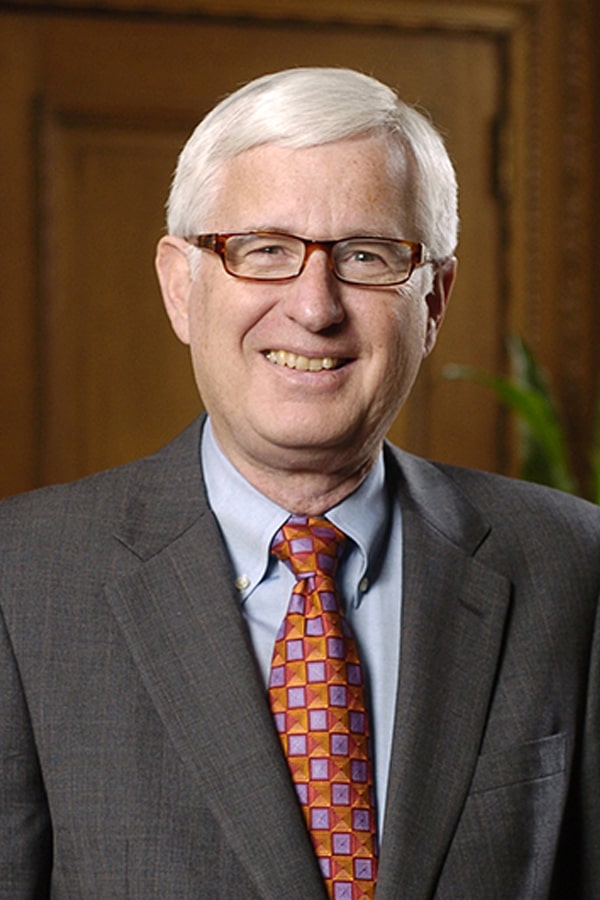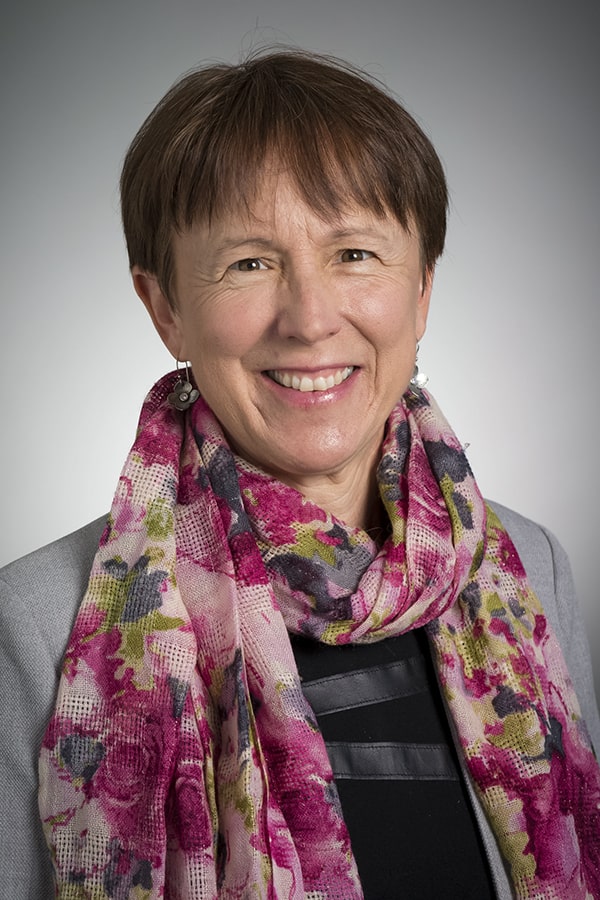Gilman, Roeder Named 2020 AAAS Fellows
By Stacy Kish
& Jocelyn Duffy
Media Inquiries- Dietrich College of Humanities and Social Sciences
- 412-268-9309
- Mellon College of Science
- 412-268-9982
Carnegie Mellon University's Fred Gilman and Kathryn Roeder have been selected fellows of the American Association for the Advancement of Science (AAAS).
AAAS is the world's largest general scientific society and publisher of several highly regarded journals, including "Science." Fellows are elected by their peers to honor their scientifically or socially distinguished efforts to advance science or its applications. This year, AAAS has elevated 443 of its members with this honor.
Gilman, the Buhl Professor of Theoretical Physics was recognized for his work elucidating the fundamental nature of CP violation and his sustained and successful leadership in the particle physics and cosmology communities.
Gilman has a record of national and international professional service and leadership. Most recently, he served for six years as chair of the committee overseeing the construction of the Large Synoptic Survey Telescope. From 1999 to 2005, he chaired the High Energy Physics Advisory Panel, which advises the National Science Foundation and the Department of Energy (DOE) on setting the nation's priorities for particle physics. For over a decade he was one of three senior advisors designated by the DOE under the U.S.-China Agreement on Cooperation in High Energy Physics. This led to new Chinese facilities and increased collaboration in particle physics experiments in both China and the United States.
Gilman joined the Carnegie Mellon faculty in 1995. He was the head of the Department of Physics from 1999-2008, where he led its growth in emerging fields such as cosmology and biological physics. He was dean of the Mellon College of Science (MCS) from 2007-2016, where he ushered in many new innovations. He was deeply engaged in and actively oversaw the development and implementation of a new MCS Core Education for undergraduate students; introduced a framework for decreasing bias and increasing diversity in recruiting that has been adopted by other colleges at the university; joined with the dean of the College of Engineering to provide seed funding for new interdisciplinary collaborations; and led the construction of a major neurobiology facility while renovating many labs and creating interactive common spaces in the Mellon Institute.
Prior to arriving at Carnegie Mellon, Gilman was the associate director of the Superconducting Supercollider (SSC) and led the physics research portion of the SSC project. He previously spent 23 years as a faculty member at Stanford University.
Gilman's research has focused on the physics of heavy quarks and leptons and on the difference in the behavior of matter and antimatter (CP violation), which in turn is a key component of an explanation of the dominance of matter over antimatter in the universe.
Roeder, UPMC Professor of Statistics and Life Sciences, is being recognized for her distinguished contributions to statistical genetics and genomics methodology, outstanding research in genetics of autism spectrum disorder and contribution to statistical theory for mixture models.
Roeder started her research career in biology but was soon drawn to statistics. According to Roeder, "every question that interested me could only be answered by solving an even more intriguing statistical puzzle." Her first major data project was in DNA forensics, helping to solidify the credibility of this form of evidence in the judicial system.
As her scientific career advanced, Roeder transitioned to developing statistical and machine learning tools for finding associations or patterns in data. She focuses on high dimensional inference problems with applications such as analyzing variation in the whole human genome and how it relates to disease. Her work has contributed to a better understanding of schizophrenia, autism and other genetic disorders.
"My results for mixture models have been used to better understand a broad range of scientific phenomena," Roeder said. "This, for me, is the most satisfying aspect of statistics, when methods you develop are applied to answer important scientific questions."
Roeder holds a joint appointment at CMU, joining the Department of Statistics & Data Science in the Dietrich College of Humanities and Social Sciences in 1994 and the Computational Biology Department in the School of Computer Science in 2004. She also served as the university's vice provost for faculty from July 2015 through June 2019.
Roeder has published more than 150 scholarly articles and was elected to the National Academy of Sciences in 2019. She is an elected fellow of the American Statistical Association and the Institute of Mathematical Statistics. She received the Snedecor Award for outstanding work in statistical applications, the Janet L. Norwood Award for outstanding achievement by a woman in statistical sciences and the Committee of Presidents of Statistical Societies Presidents' Award for the outstanding statistician under age 40.
Roeder previously served as the statistics section chair for AAAS and has played an integral role in organizing conference sections aimed at helping her community improve how statistics are communicated across scientific disciplines, as well as to the public.
"I am deeply honored to receive this recognition by my peers," Roeder said. "I will continue to push the boundaries of statistics to uncover the genetic underpinning of diseases and disorders, like autism, and I will continue to work with my colleagues in other fields to translate these findings into biology and therapeutics."
Gilman and Roeder are among 33 AAAS Fellows who have called CMU home. They will be inducted on Saturday, Feb. 15, 2020 during the AAAS annual meeting in Seattle.

